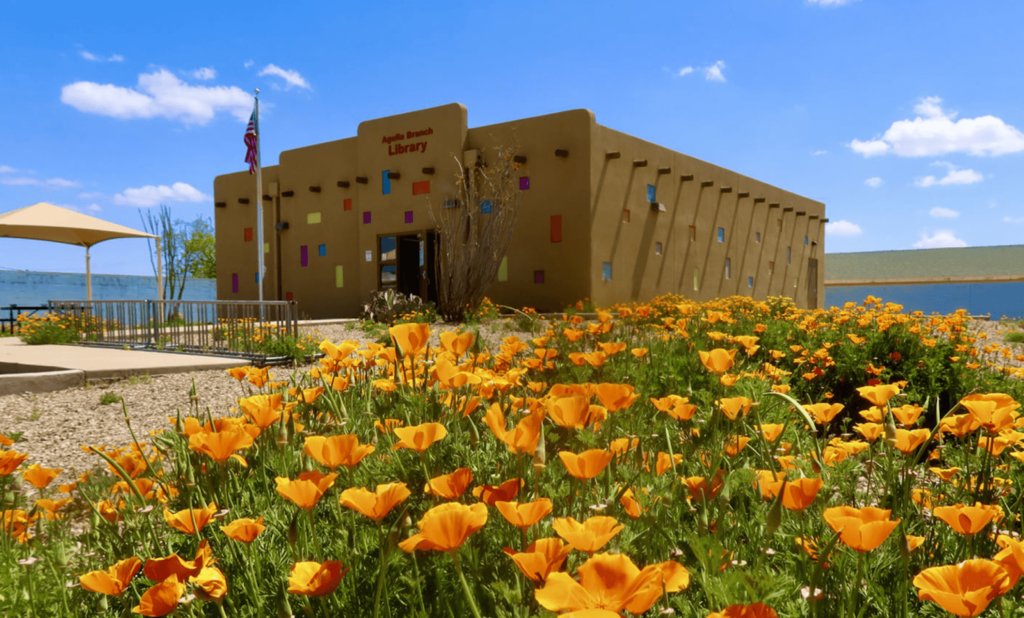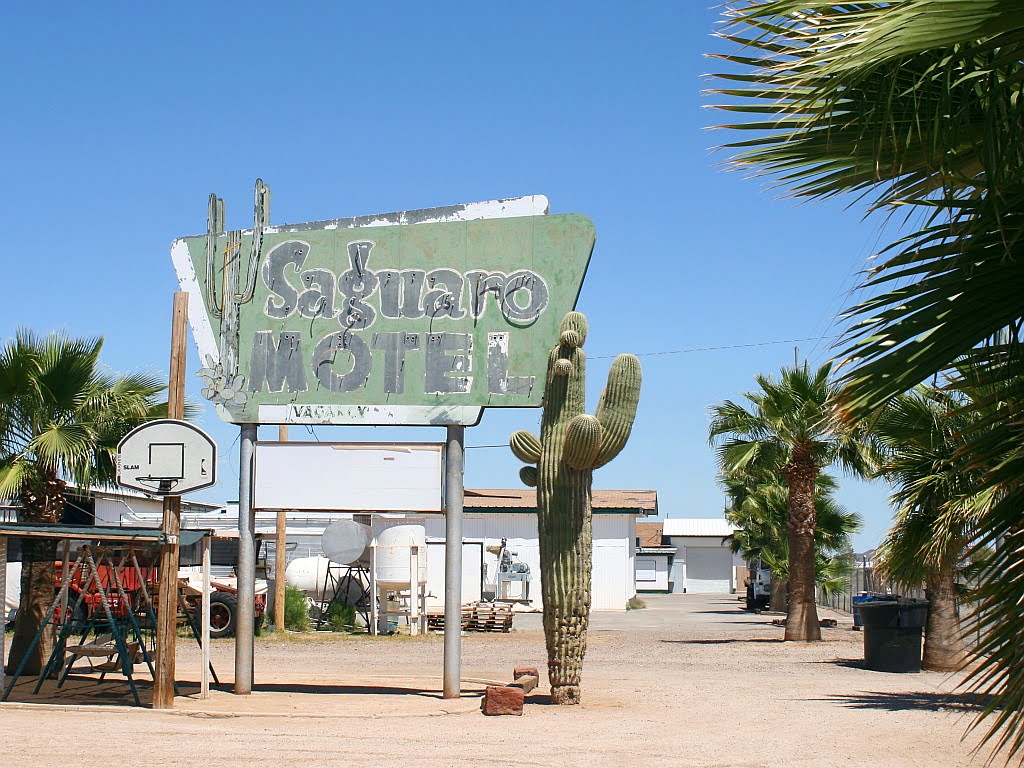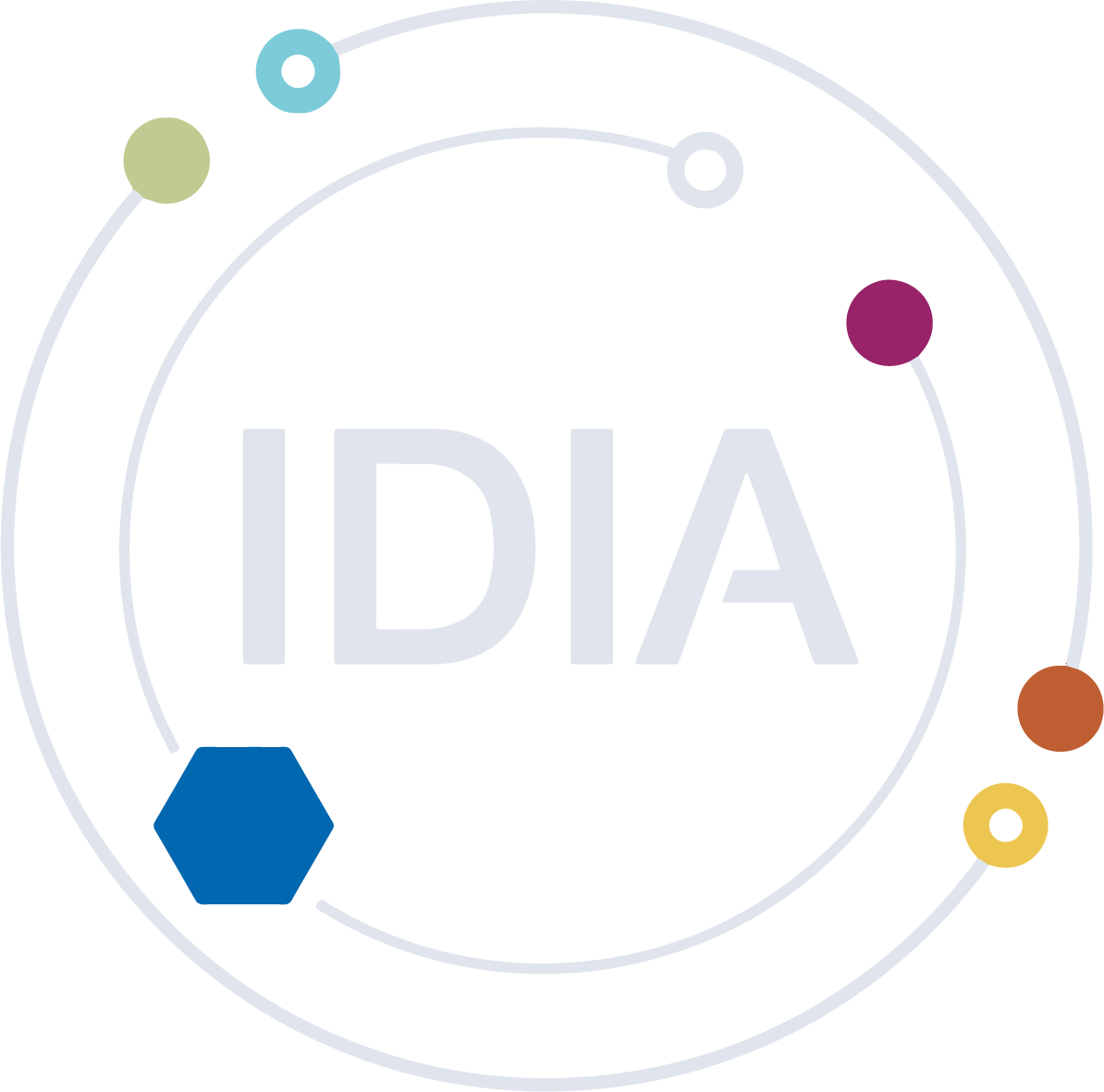In the heart of Arizona lies the small farming town of Aguila, a community of 565 residents known for their resilience and tight-knit community. The people of Aguila work hard to support their families and one another, but like many rural areas, they face a significant digital divide. High school students must commute daily to Wickenburg for their education, and job opportunities in Aguila are limited compared to those in urban areas of Arizona.
To bridge this gap, the Institute for Digital Inclusion Acceleration (IDIA) has partnered with the Maricopa County Library District and local organizations to bring technology and training directly to Aguila through pop-up versions of The Hive – community hubs where people can access and get training on technology. IDIA is part of a consortium, alongside YWCA and Aguila Library, that is working to support the local community.
IDIA’s work is also part of the broader Maricopa County Broadband Initiative Grant program, aimed at enhancing digital access in unincorporated areas like Aguila. “The Maricopa County Board of Supervisors has made expanding internet connectivity a priority. But residents also need to have the knowledge and skill to maximize the use of the connectivity,” said Maricopa County Supervisor Bill Gates. “The County has been proud to partner with IDIA to help promote both of these goals.”
Addressing digital deserts in rural America
Digital exclusion remains a critical issue across the United States, particularly in rural areas like Aguila. According to the National Skills Coalition, 92% of today’s jobs require digital skills, yet nearly 32 million Americans lack basic digital literacy. In low-income and rural communities, this gap is even more pronounced, leaving many without the necessary tools to join the modern economy.
For Aguila, the challenge is not just access to the internet, but the skills and confidence to use it effectively. Many residents, from children to older adults, lack the resources to gain these skills, further deepening the divide.
Bringing hands-on access and training to the community
In Aguila, IDIA’s approach has been multifaceted. They began by distributing 20 iPads to local students, ranging from elementary school children to high school seniors. IDIA also introduced monthly workshops at the local library, where residents can learn about online safety, green screen technology, and even gain an introduction to generative AI. These workshops are designed not only to teach digital skills but also to build confidence in using technology.

Aguila Library – Maricopa County Library District
“In Aguila, it’s all about engaging with the community where they are and understanding their needs, strengths, and challenges,” said Dr. Erin Carr-Jordan, President and CEO of IDIA. “The people of Aguila remind us that genuine impact comes from listening and responding to their experiences. By addressing the barriers they’ve faced and working together to find solutions, we create opportunities for everyone to thrive. Digital tools are just one part of this journey; the spirit of collaboration and the community’s resilience makes real change possible. This is our model, and it’s how we approach our work in every community we serve.”
The impact of this initiative has been profound. “Our first workshop included around 20 students,” says Dominic Papa, Chief Government Relations Officer at IDIA. “We were about to wrap up for the day when two siblings approached us, saying their brother really wanted to join but couldn’t. Just then, the boy, drenched in sweat, rushed into the library. He was about 15 or 16 years old and had been working in the fields all day to help support his family. Despite his exhaustion, he could barely contain his excitement when we handed him a kit.”
For this 15-year-old student, the kit represented more than just a set of devices—it was an opportunity to develop skills that could lead to better job prospects and a means to contribute to his family’s well-being. “We’re hoping to keep people in Aguila,” Papa says, “to help them find better-paying jobs, even online jobs, so they don’t have to leave their home for opportunities.”
Libraries as community anchors
Libraries have long served as community anchors, particularly in rural areas where resources are limited. In Aguila, the local library manager, William E. Dudley, has been a critical partner in IDIA’s efforts. Dudley, who knows the community like the back of his hand, has witnessed the challenges faced by residents and the difference that access to digital tools can make.
“The library is more than just a place to borrow books; it’s a lifeline for the community,” says Dudley. “Our partnership with IDIA has brought new opportunities to Aguila, and it’s incredibly rewarding to see the positive impact it’s having on our residents.”
Expanding IDIA’s vision beyond Aguila
The success of the digital inclusion efforts in Aguila has laid the groundwork for future initiatives. IDIA views this project as a proof point, demonstrating that their mobile hive model is scalable and replicable in other rural communities. While challenges remain — such as ensuring consistent access to resources and maintaining engagement — IDIA is committed to overcoming these obstacles and expanding their reach.
Through innovative partnerships and a commitment to inclusion, IDIA is paving the way for a future where everyone, regardless of their location or background, can fully participate in society and the economy. As IDIA continues its work, the vision is clear: In the digital age, no community should be left behind.

Saguaro Motel in Aguila, photo by Chuck Coker
